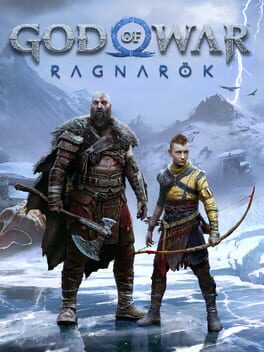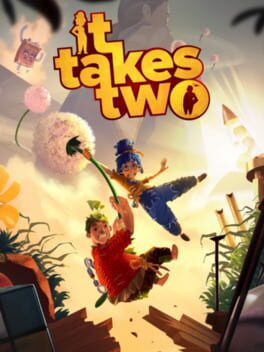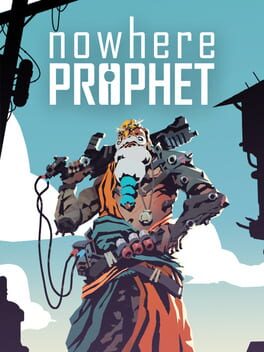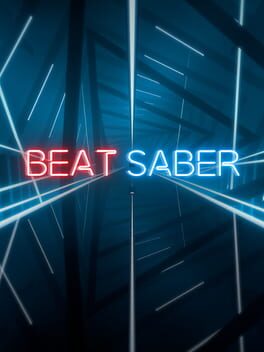Bio
i play too many video games
i play too many video games
Badges

GOTY '23
Participated in the 2023 Game of the Year Event

Loved
Gained 100+ total review likes

GOTY '22
Participated in the 2022 Game of the Year Event

Best Friends
Become mutual friends with at least 3 others

4 Years of Service
Being part of the Backloggd community for 4 years

GOTY '21
Participated in the 2021 Game of the Year Event

Well Written
Gained 10+ likes on a single review

Popular
Gained 15+ followers

Liked
Gained 10+ total review likes

GOTY '20
Participated in the 2020 Game of the Year Event

Gamer
Played 250+ games

N00b
Played 100+ games

Noticed
Gained 3+ followers
Favorite Games
468
Total Games Played
003
Played in 2024
088
Games Backloggd
Recently Played See More
Recently Reviewed See More
God of War: Ragnarök is not a perfect game. There are small frustrations, little ways it probably could have been tweaked or adjusted. Small excesses here and sparsenesses there. But it did something one of these games hasn't done for me in a really long time. It surprised me. Over and over again.
My experience with most games on the scale of God of War: Ragnarök — which is to say massive, first-party tentpoles built over half-decades by massive teams — has most frequently been one of exhaustion. There's a sacrifice that comes with their kind of exacting, focus-tested vastness: a lack of interesting friction, a lack of intimacy with their characters, a lack of texture to their worlds, and a lack of the creative strangeness that would otherwise make them memorable. More often than not, they end up being empty spectacle, body without soul. But not this one.
Ragnarök is an exceedingly well-written game. It expands on the foundation laid by 2018's God of War, the prototypical Sad Dad Game, and spins a series of threads about parenthood, grief, and loss — no longer just Kratos and Atreus, but other fathers and mothers and daughters and sons, all caught in a web of one particular antagonist's insatiable quest for knowledge. Every criticism levied at GOW 2018 for being myopic, for Kratos's redemption arc being forced, or especially for the way it treated its women characters, is not just addressed here, but addressed so fully that it almost recasts those absences as setup. There's a surprising amount of courage in the way Ragnarök paces its plot reveals; it's a slow-burn at parts, but never one I found to slow to enjoy, and when its characters have their schisms and reconciliations, they always feel fully earned. This is mature storytelling, put to work in a way recent games like The Last of Us II have tried and failed to grasp. And beyond that, Ragnarök takes advantage of its source material — the cold, melancholic Icelandic Sagas, built around petty familial tragedies and hauntings — better than I ever expected it to. It may not be the highest bar, but it really is the best that writing in a game like this has ever been.
Beyond that, every other element works in concert with the story to weave a consistently engaging, often thrilling and joyful experience. The combat here is just as good as God of War 2018's was, with some additions that add a satisfying level of depth and complexity to the late game. The world design is immaculate, fusing together open-world games, metroidvanias, and soulslikes into a spellbinding and often stunningly beautiful rendition of the Nine Realms. Its controls are weighty and rewarding. Its soundtrack is a perfect blend of environmental ambiance and appropriate bombast. Its voice acting is stellar, with Christopher Judge and Co. putting in incredible work. It is, all around, a testament to what a game like this can be — even if they rarely ever are.
My experience with most games on the scale of God of War: Ragnarök — which is to say massive, first-party tentpoles built over half-decades by massive teams — has most frequently been one of exhaustion. There's a sacrifice that comes with their kind of exacting, focus-tested vastness: a lack of interesting friction, a lack of intimacy with their characters, a lack of texture to their worlds, and a lack of the creative strangeness that would otherwise make them memorable. More often than not, they end up being empty spectacle, body without soul. But not this one.
Ragnarök is an exceedingly well-written game. It expands on the foundation laid by 2018's God of War, the prototypical Sad Dad Game, and spins a series of threads about parenthood, grief, and loss — no longer just Kratos and Atreus, but other fathers and mothers and daughters and sons, all caught in a web of one particular antagonist's insatiable quest for knowledge. Every criticism levied at GOW 2018 for being myopic, for Kratos's redemption arc being forced, or especially for the way it treated its women characters, is not just addressed here, but addressed so fully that it almost recasts those absences as setup. There's a surprising amount of courage in the way Ragnarök paces its plot reveals; it's a slow-burn at parts, but never one I found to slow to enjoy, and when its characters have their schisms and reconciliations, they always feel fully earned. This is mature storytelling, put to work in a way recent games like The Last of Us II have tried and failed to grasp. And beyond that, Ragnarök takes advantage of its source material — the cold, melancholic Icelandic Sagas, built around petty familial tragedies and hauntings — better than I ever expected it to. It may not be the highest bar, but it really is the best that writing in a game like this has ever been.
Beyond that, every other element works in concert with the story to weave a consistently engaging, often thrilling and joyful experience. The combat here is just as good as God of War 2018's was, with some additions that add a satisfying level of depth and complexity to the late game. The world design is immaculate, fusing together open-world games, metroidvanias, and soulslikes into a spellbinding and often stunningly beautiful rendition of the Nine Realms. Its controls are weighty and rewarding. Its soundtrack is a perfect blend of environmental ambiance and appropriate bombast. Its voice acting is stellar, with Christopher Judge and Co. putting in incredible work. It is, all around, a testament to what a game like this can be — even if they rarely ever are.
I'm pretty sure Josef Fares has played Spongebob: Battle for Bikini Bottom at some point in his life, and that image sparks true joy.
...but for real, It Takes Two is much weirder than most games that manage to reach its level of prominence. In some ways, it feels like an early-2000s media tie-in game — especially the ones that are more like a long thread of very detailed mini-games — updated with modern design and physics. For me, its movement, feel, mechanics, and even level design were definitely reminiscent of Battle for Bikini Bottom, as well as a bit of Crash Bandicoot and, weirdly, the old Harry Potter PC games. Those games came in an era where genres and mechanics were less calcified; despite having a smaller range of tools to play with, they often shifted gameplay styles, perspectives, and even core mechanics between different sections. It Takes Two is strange, zany, and sometimes written in ways that make me wonder if its two writers could have maaaaybe solicited some editorial feedback... but on the whole, it's an endlessly creative and imaginative game, and a high water mark for dedicated co-op games.
...but for real, It Takes Two is much weirder than most games that manage to reach its level of prominence. In some ways, it feels like an early-2000s media tie-in game — especially the ones that are more like a long thread of very detailed mini-games — updated with modern design and physics. For me, its movement, feel, mechanics, and even level design were definitely reminiscent of Battle for Bikini Bottom, as well as a bit of Crash Bandicoot and, weirdly, the old Harry Potter PC games. Those games came in an era where genres and mechanics were less calcified; despite having a smaller range of tools to play with, they often shifted gameplay styles, perspectives, and even core mechanics between different sections. It Takes Two is strange, zany, and sometimes written in ways that make me wonder if its two writers could have maaaaybe solicited some editorial feedback... but on the whole, it's an endlessly creative and imaginative game, and a high water mark for dedicated co-op games.









